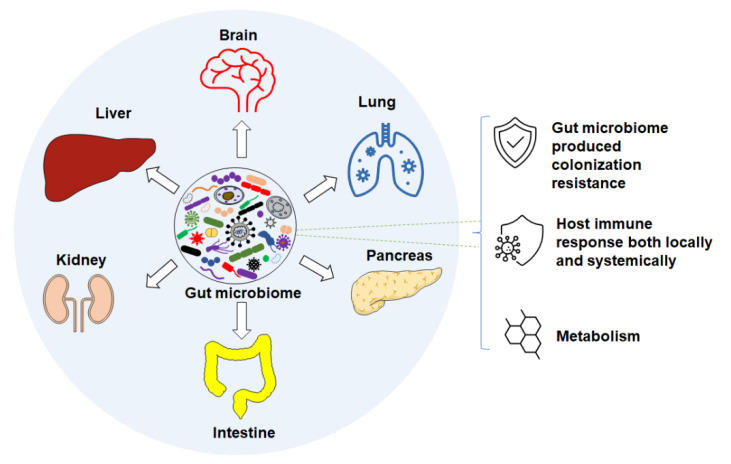Gut Microbiota Bioinformatics Analysis Service
In the process of exploration and research on microorganisms, more and more sequencing technologies have been continuously developed. While these advances allow the focus range of the project from individual organisms to microbial communities as a whole, they also brought daunting bioinformatic challenges. Creative Biolabs provides fast, reliable gut microbiota bioinformatics analysis services using cutting-edge genomics and informatics.
Gut Microbiota
The gut microbiome is a complex ecosystem with simple structures and includes bacteria, fungi, viruses, and others. They have a great impact on the overall health of the host. Under normal physiological conditions, the gut microbiome is homeostasis and changes over time depending on the age and dietary habits of host.
The microorganisms living in gastrointestinal tract has various functionalities:
-
Absorption of nutrients and minerals
-
Fermentation of fibers to short-chain fatty acids
-
Synthesis of vitamins
-
Breakdown of toxic components
-
Regulation of the immune system
The microorganisms living is in close correlation to many diseases:
-
Liver diseases
-
Diabetes
-
Inflammatory bowel disease
-
Autoimmune diseases
-
Colorectal cancer
-
Diseases of the central nervous system.
Increasing data of biological research have shown that microbiota plays a significant role in the occurrence and development of human diseases. Understanding the relationship between the microbiota and the host disease can be very useful in the treatment of complex diseases, such as inflammatory bowel disease and diabetes.
 Fig.1 Gut microbiome associates with disease through different pathways.1
Fig.1 Gut microbiome associates with disease through different pathways.1
Gut Microbiota Bioinformatics Analysis
All sequencing platforms perform sequencing of millions of small fragments of DNA in parallel. Bioinformatics analyses are used to piece together these fragments by mapping the individual reads to the human reference genome. The choice of bioinformatics methods used for analyzing any microbiome dataset from pre-processing of the reads through the final step of the analysis is a key factor for gaining high-quality biological knowledge. Traditional methods, employed to identify microbe-disease associations, are low efficiency and insufficient information. To date, benefitting from the rapid development of machine learning and artificial intelligence, new complex statistical and computational techniques have been developed to work for the big data generated from human microbiome research. With all the above, you can do your best to develop microbiota projects. Especially new model exploration in the field of human health, and even develop new disease treatment methods.
Our Services
-
High-throughput solutions for chimera detection in short reads
-
High-performance alternatives, short read clustering, and mapping approaches
-
New interfaces to heterogeneous microbial community data
-
New de novo assembly software tailored to the Illumina data
Creative Biolabs is an expert in bioinformatics analysis around large-scale datasets. Our service aims to bring together extensive expertise with robust computational infrastructures, actively developing new cutting-edge approaches for the analysis of gut microbiota data. We focus on different aspects of the data analysis process, including sequence quality control, assembly, annotation, metabolic reconstruction, and 16S-based studies. Creative Biolabs also provides a range of gut microbial biomarker discovery services, ranging from targeted tests, such as 16S for prokaryotes, to whole-genome analysis, such as whole-exome sequencing.
With experts in microbiome and bioinformatics, Creative Biolabs powers microbiome discovery through advanced extraction and sequencing techniques as well as industry-leading bioinformatics. Contact us to discuss how we will support your microbiome study.
Reference
-
Zhang, Chunye, Craig L. Franklin, and Aaron C. Ericsson. "Consideration of gut microbiome in murine models of diseases." Microorganisms 9.5 (2021): 1062. Distributed under Open Access license CC BY 4.0, without modification.
For Research Use Only | Not For Clinical Use


 Fig.1 Gut microbiome associates with disease through different pathways.1
Fig.1 Gut microbiome associates with disease through different pathways.1
 Download our brochure
Download our brochure